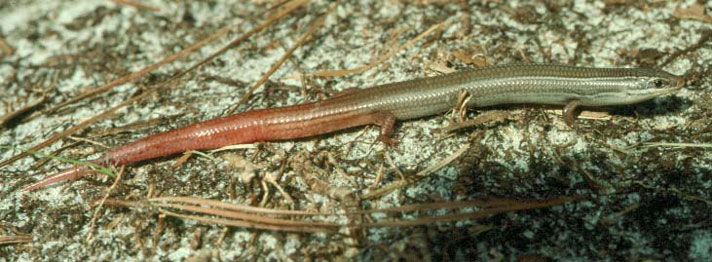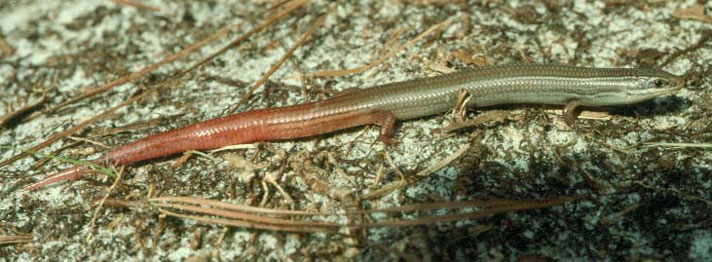The little skink can only be found on a few islands in the Florida Keys.
The Center for Biological Diversity announced today its intent to sue the Trump Administration for denying Endangered Species Act protections for the Florida Keys mole skink (Plestiodon e. gregius), a small lizard that lives in coastal areas of the Keys that are predicted to be underwater by 2060 due to the rise in sea levels caused by climate change.

usfws
The Florida Keys mole skink is only found on a few islands in the Florida Keys.
The U.S. Fish and Wildlife Service conducted a survey in 2015, finding that the little lizard might warrant Endangered Species Act Protections after the Center petitioned the USFWS to protect the species. The Trump Administration last month denied protections for the lizard.
“Without help the Florida Keys mole skink is definitely headed for extinction,” said Elise Bennett, a Center attorney dedicated to protecting rare reptiles and amphibians, said in a statement announcing the lawsuit. “This little lizard’s only home, the Florida Keys’ sandy coast, is being submerged by rising seas and battered by increasingly intense storms. If we don’t curb greenhouse gas pollution, this lizard and so many other plants and animals will be lost forever.”
Want To Learn More?
Florida Keys Mole Skink Denied Endangered Species Act Protection
The lizard lives only on a few islands in the Florida Keys, and that habitat is vulnerable to rising sea levels and stronger storms and hurricanes that some attribute to climate change. The population of the lizard in the small geographic area in which it is found could be devastated by a single storm event, the Center contends, and must be protected.
“These lizards are struggling to survive on a sinking lifeboat,” Bennett said in the statement announcing the intention to sue the Trump Administration. “We have a responsibility to rescue them before they’re drowned by rising seas. The Center will fight to overturn this unscientific, irresponsible denial and salvage the future for these exquisite little animals.”



